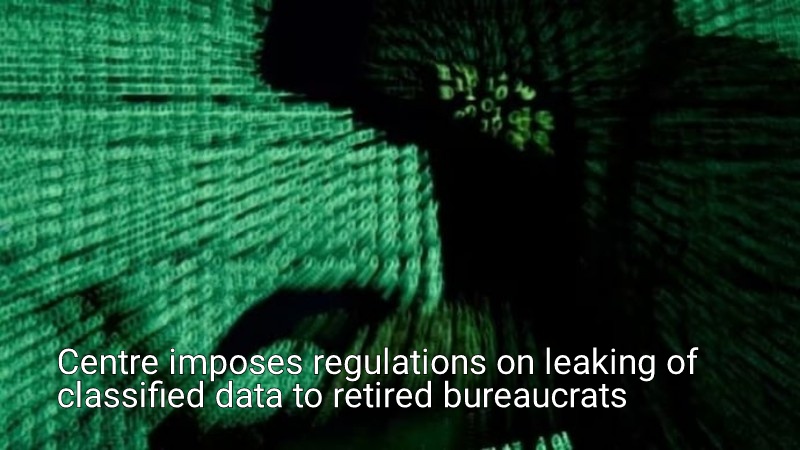
With the potential for serious repercussions, the Department of Personnel and Training (DoPT) has put strict controls in place to stop retiring bureaucrats from leaking secret material.
According to a July 6 notification from the DoPT, a bureaucrat’s pension and other related benefits could be terminated if they divulge sensitive information after they have retired.
In multiple occasions, former IAS, IPS, and IFS personnel have made dramatic disclosures in their books, divulging information that shouldn’t be made public. As a result, it was decided to enforce these guidelines.
The All India Services (Death-cum-Retirement-Benefits) Amendment Rules, 2023 are a set of stringent restrictions that the central government has created to stop such practises.
Rule 3(1) states that former All India Service officers can only get their pension if they behave well. According to Rule 3(2), the Central Government has the right to indefinitely suspend a pensioner’s benefits if they are found guilty of misconduct or convicted of a major crime after retirement.
The government will assess the seriousness of the offence committed by the retired officer and must consult with the Union Public Service Commission (UPSC) before taking any action to suspend or cancel the pension.
The DoPT announcement further emphasises that anyone who has worked in intelligence departments must get the organization’s boss’ approval before releasing any information to the public. Members of the All India Services who have worked for security or intelligence organisations are forbidden from publishing anything without authorisation under Rule 6(a), Subrule(4).
This includes keeping confidential any sensitive information they may have learned about the organization’s work environment, personnel details, and any other classified material they may have observed while working there. It is strictly forbidden to disclose any material that could endanger India’s integrity, sovereignty, security, economic interests, or international relations.
A rule breach will also be deemed any action that encourages criminal activity. The notification is very explicit that it will be considered a serious offence if such material is made available to the public by letters to publications, press releases, electronic media, books, posters, pamphlets, or any other type of publication.
According to DoPt regulations, it is a grave crime for a member to publish information from records, documents, memoranda, emails, opinions, advice, press releases, circulars, orders, logbooks, contracts, reports, papers, samples, models, or any other electronic form they kept while serving.
The application of these regulations is to preserve the integrity of the bureaucracy, safeguard sensitive information, and ensure national security interests.

Post Your Comments